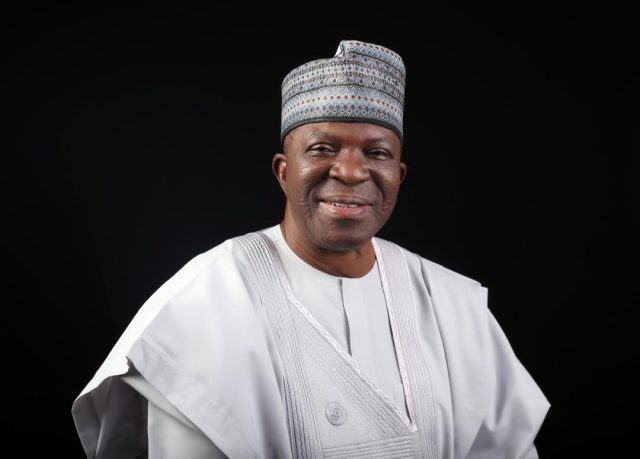The Federal Government has reiterated its commitment to transforming Nigeria’s international boundaries from zones of division into corridors of cooperation and economic integration, particularly for communities along the borders.
This was the central message at the 2025 African Border Day celebration held in Abuja on Monday. Organised by the National Boundary Commission (NBC) with the theme, “Building Community Resilience and Economic Development through Cross-Border Cooperation.”
The Director-General of the NBC, Adamu Adaji, stated that the commemoration provided a platform to reflect on the significance of borders not merely as geopolitical demarcations, but as strategic instruments for peace, security, and regional development.
He noted that while colonialism had left Africa with arbitrary lines that divided people of common heritage, present-day governance must repurpose those boundaries to enable shared growth and cross-national unity.
“Borders are where sovereignty ends, but cooperation begins,” Adaji said. “Our goal is to turn these frontiers into points of synergy both economically and socially between Nigeria and her neighbours.”
He provided an overview of Nigeria’s current border situation with neighbouring countries, highlighting both the progress and the challenges.
Adaji described the Nigeria-Benin border as one of the most complex, spanning six states and 10 local councils, with persistent issues in Kebbi, Kwara, Niger, and Ogun states. Similarly, he explained that although the Nigeria-Niger boundary is nearly fully demarcated, disputes remain over water boundaries and border-straddling communities.
On the Nigeria-Chad border, which runs through Borno State and mostly covers the Lake Chad region, boundary work has been stalled by ongoing insurgency.
Adaji also addressed the Federal Government’s directive to the NBC to identify coastal and littoral host communities under the Petroleum Industry Act (PIA). This, he said, is key to ensuring equity and inclusion in the distribution of oil benefits, particularly in shallow and deep-water areas.
He reminded participants that African Border Day, instituted by the African Union in 2010 and marked annually on June 7, was designed to raise awareness of the strategic role borders play in regional cooperation and socioeconomic development.
He reaffirmed Nigeria’s commitment to the AU’s Niamey Convention on Cross-Border Cooperation, which the country has ratified.
According to him, this year’s observance also aligns with the AU’s broader continental theme: “Justice for Africans and People of African Descent Through Reparations”, a focus that underlines the lingering impact of colonial borders and the need to uplift frontier communities through structural transformation.
Adaji called on all stakeholders—from traditional rulers and local leaders to security agencies and international partners—to collaborate more effectively in the quest to turn borders into bridges.
“Good fences make good neighbours,” he said, stressing that responsible boundary governance is not just about maps and markers, but about people, prosperity, and peace.
Also speaking, deputy governors from Nigeria’s coastal and international border states called on the Federal Government to establish special intervention funds and overhaul security architecture along the nation’s borders.
Speaking during a goodwill message at a high-level event, the Deputy Governor of Bayelsa State, Senator Lawrence Ewhrudjakpo, who also chairs the Nigeria Coast Border Platform, lamented the lack of visible commitment from the Federal Government toward strengthening marine and coastal border security.
“I have not seen what the Federal Government is doing to create special funds for this platform. On our borders, we should have a dedicated Marine Safety Corps for intelligence gathering,” Ewhrudjakpo said.
He added that efforts under the marine and blue economy framework remain insufficient, particularly for border communities that remain vulnerable and underdeveloped.
The deputy governor emphasised the importance of taking the border development agenda seriously, warning that failure to act decisively could jeopardise national security and economic growth in the region.
Similarly, the Deputy Governor of Sokoto State, Engr. Idris Mohammed, who chairs the Nigeria-Niger International Border Platform, emphasised that insecurity remains a fundamental threat to any form of regional collaboration.
“As long as we have insecurity, we should not even talk about collaboration. Let us achieve security first,” he said.
Mohammed noted that Nigeria’s porous borders have become easy entry points for criminal elements, including bandits who operate unchecked along the border corridors. “It is easier to cross from Niger into Nigeria, but not the other way around — not because of policies, but due to compromise,” he lamented.
He questioned why most of the bandits reside on the Nigerian side of the border and not in Niger, arguing that poor border infrastructure and security were to blame.
“If we maintain our borders well, insecurity will be over.
Just placing pillars won’t solve the problem. We need to do something more concrete and deliberate,” he urged.
The Deputy Governor called on the National Boundary Commission (NBC) and security agencies to urgently intensify efforts to secure Nigeria’s borders, noting that this is the only path to sustainable peace and development in the region.







